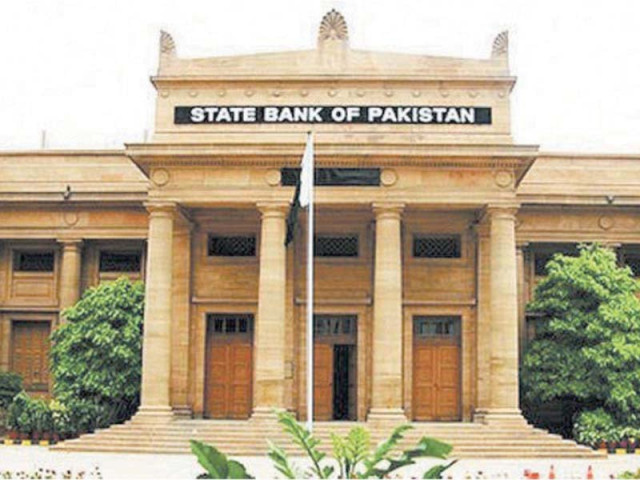Senate panel approves giving some muscle to SBP
Also says yes to govt getting four more years to retire debt owed to central bank

The government remained successful in keeping its hold over the SBP, as it did not remove the federal secretary finance from the SBP Board. PHOTO: FILE
A Senate panel on Thursday approved the State Bank of Pakistan (SBP) Amendment Bill 2015, giving more autonomy to the central bank in monetary policy decision-making, besides extending a four-year lease to the federal government in retiring its borrowings from the SBP.
The government, for the time being, also remained successful in keeping its hold over the SBP, as it did not remove the federal secretary finance from the SBP Board despite it being demanded by the International Monetary Fund (IMF).

The Senate Standing Committee on Finance approved the bill with certain amendments and the government will now have to seek a fresh vote from the National Assembly Standing Committee on Finance. The National Assembly has already approved the SBP Amendment Bill in August this year. After the NA’s approval, the bill will be presented in the Senate for a vote.
Need for amendments
The amendments in the SBP Act of 1956 are a condition of the IMF under its $6.2-billion bailout package. It had set September 30 as the deadline for getting approval of the parliament, which the government has already missed.
Earlier this week, Harald Finger, the Mission Chief of IMF to Pakistan, underscored the need for early approval of the amended bill.
Read: NA passes bill, State Bank of Pakistan to take decisions independently
Headed by Senator Saleem Mandviwalla of PPP, the standing committee changed the constitution of a monetary policy committee, which will be set up for taking monetary policy related decisions under the proposed bill.
The government had proposed that the 10-member committee should be comprised of four employees of the central bank, four members of the board of the SBP and two prominent economists. The standing committee increased the number of economists to three and reduced the SBP board representation to three as well.
The amendments will strengthen the autonomy of the SBP, according to the Ministry of Finance. It added that these changes will pave the way for the establishment of an independent decision-making monetary policy committee.
The statutory monetary policy committee will be responsible for formulating, supporting and recommending the Monetary Policy, taking decisions regarding key interest rates, supplying of reserves, exchanging rate policy and given loans to the federal government.
Through another amendment, the federal government has managed to increase the period for retiring its debt from eight to 12 years. By June 2015, the federal government’s budgetary borrowings from the SBP stood at Rs1.893 trillion. Under the fresh amendment, as against the statutory requirement of retiring debt by 2019, the federal government will now retire the liability by 2023.
IMF concern
Although, the federal government conceded some ground to the central bank, it still enjoys significant influence over the SBP. The IMF, however, wants the government to further distance itself from the central bank and has expressed reservations on the draft of the SBP Amendment Bill of 2015.
In order to address these concerns, the IMF and Pakistan have agreed to a plan, which will address the lender’s remaining objections by June 2016. The international body has given its recommendations in a Safeguards Assessment report.
“These recommendations cover provisions for the SBP’s independence from government, improvements in the SBP’s governance structure and the personal autonomy of its board members, and enhancements in the SBP’s financial autonomy”, according to the IMF report on Pakistan that it released early this week.
Read: SBP deputy governor’s appointment raises eyebrows
The standing committee also approved to omit clauses related to shareholders, executive committee and local boards, as these are redundant after the promulgation of the Bank Nationalisation Act of 1974.
The standing committee also allowed the SBP to establish the Depositor’s Protection Corporation.
Another important amendment declared that the SBP will be the lender of the last resort aimed at allowing the central bank to bail out troubled banks. The SBP has also been authorised to hold and manage the international reserves.
Published in The Express Tribune, October 9th, 2015.
Like Business on Facebook, follow @TribuneBiz on Twitter to stay informed and join in the conversation.



















COMMENTS
Comments are moderated and generally will be posted if they are on-topic and not abusive.
For more information, please see our Comments FAQ